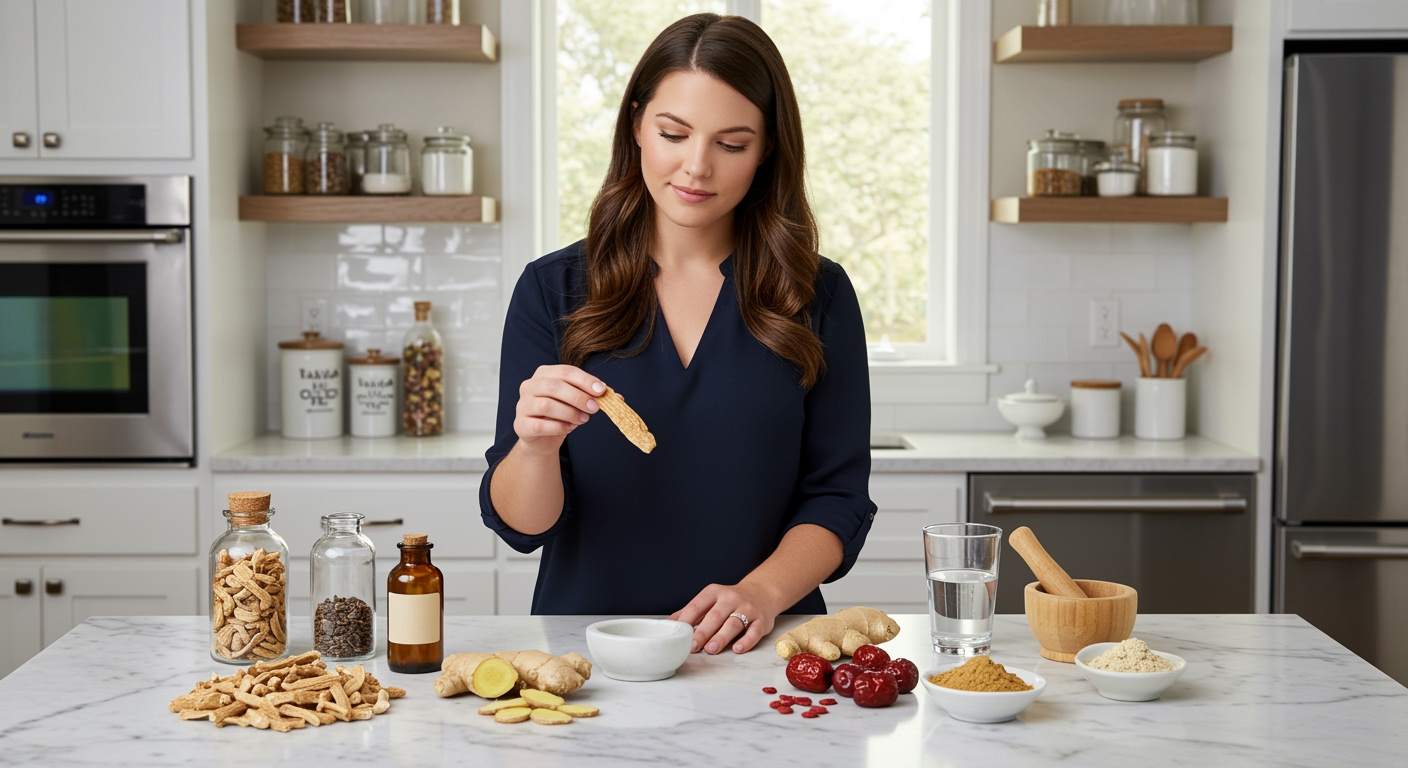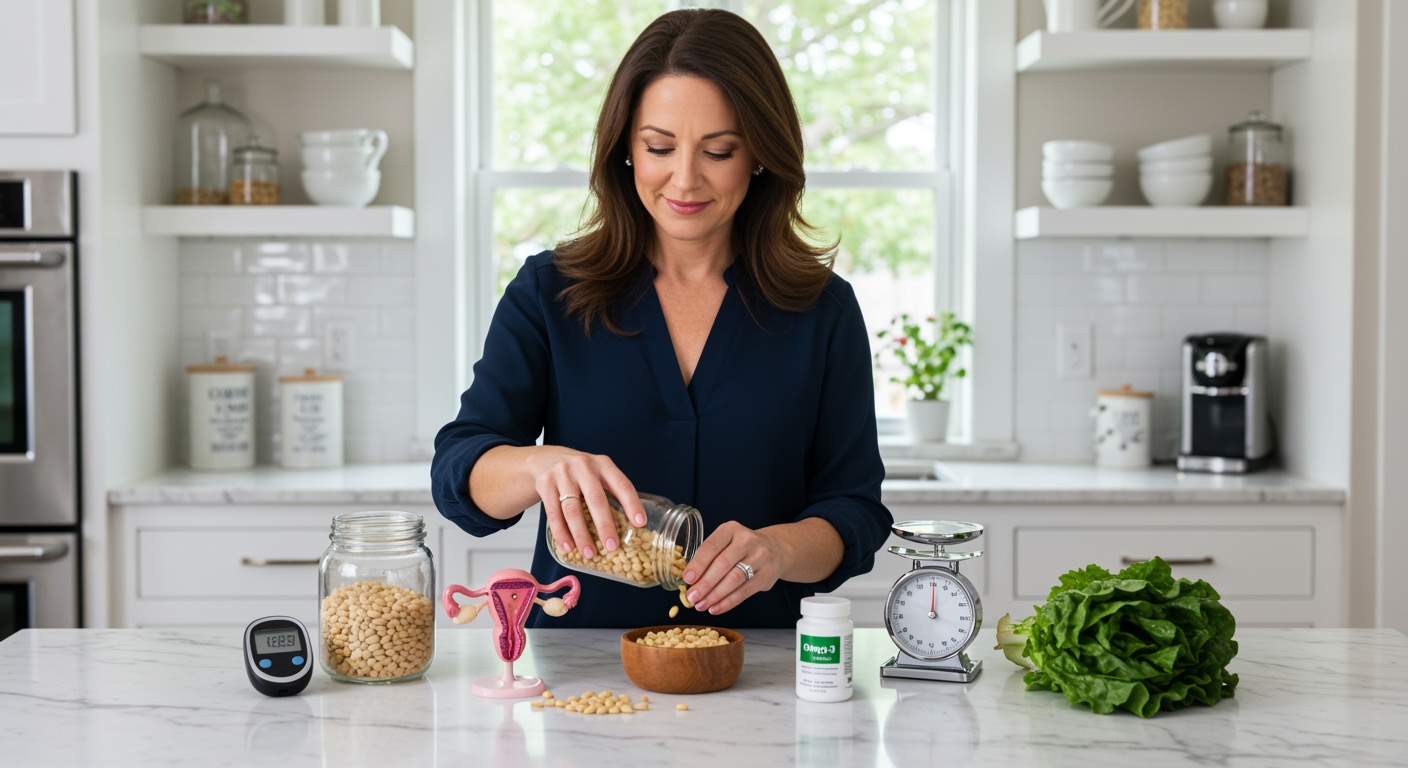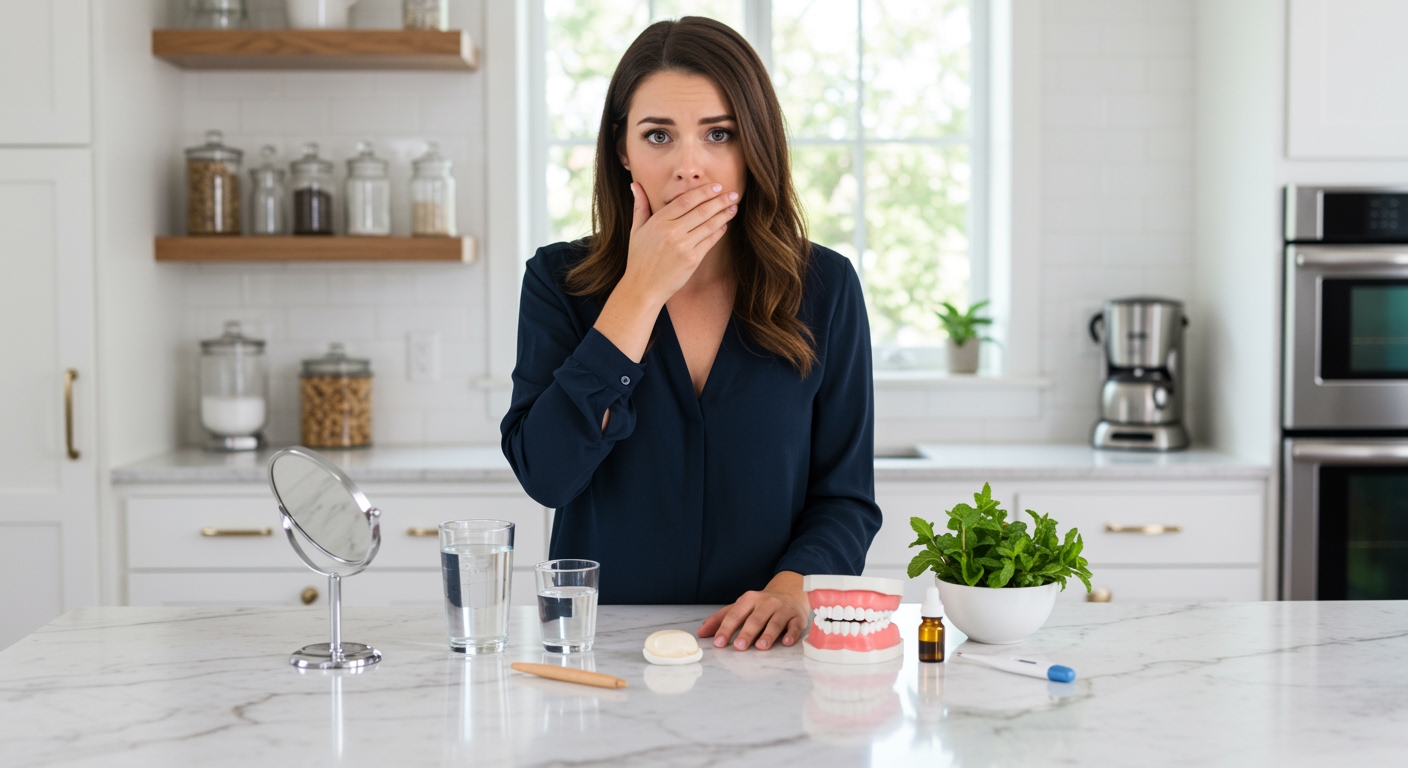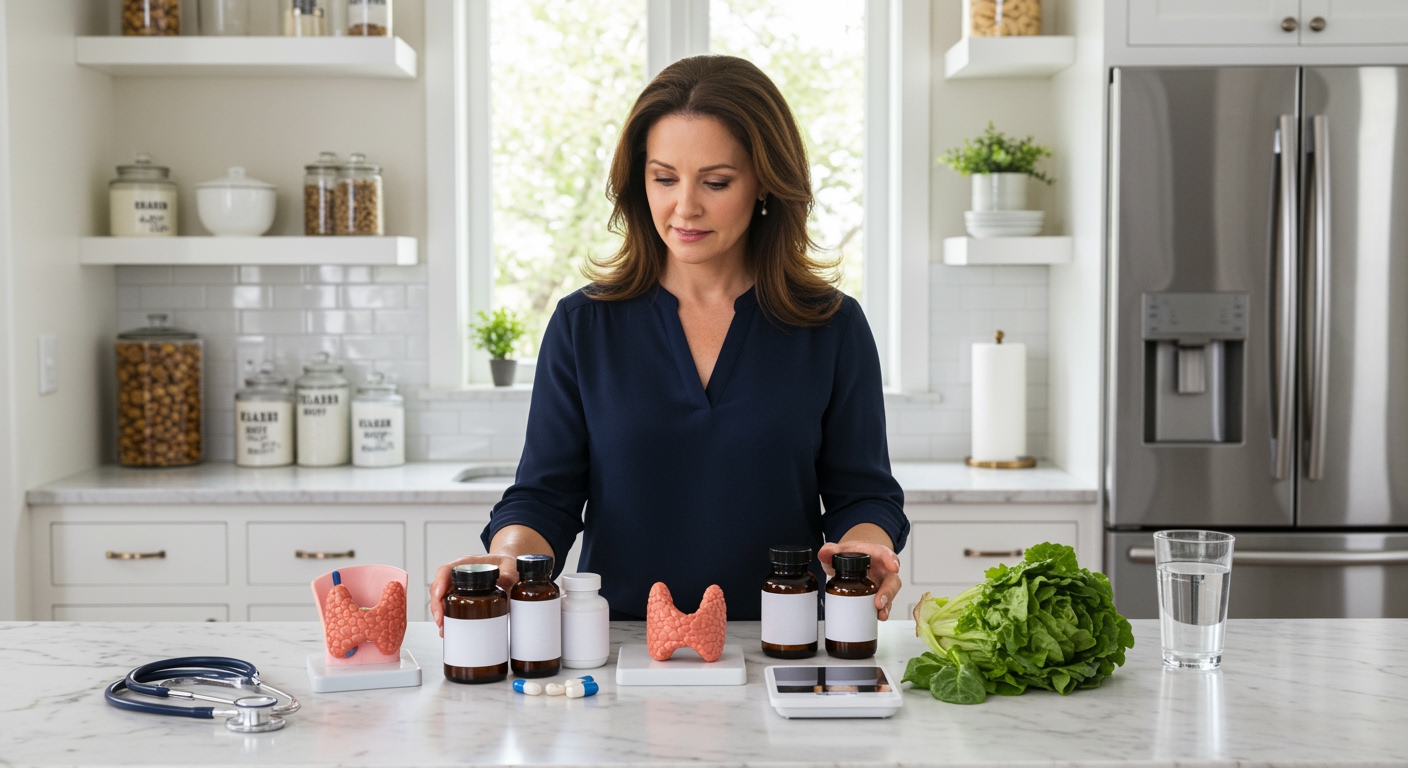✪ Key Takeaway: Dong quai may help some PCOS symptoms but lacks strong scientific evidence and carries hormone-related risks.
Introduction
Women with PCOS often feel desperate for natural solutions when conventional treatments fall short.
You might be wondering about dong quai because someone promised it would balance your hormones naturally without side effects.
Hi, I’m Abdur, your nutrition coach and today I’m going to explain whether dong quai actually helps PCOS hormone regulation and what you need to know before trying it.
What Exactly Is Dong Quai?
Dong quai comes from the root of Angelica sinensis, a plant native to China and Korea.
Traditional Chinese medicine has used this herb for over 2000 years to treat various women’s health issues.
The root contains phytoestrogens, which are plant compounds that can mimic estrogen in your body.
These compounds can either increase or decrease estrogen activity depending on your current hormone levels.
People often call dong quai the female ginseng because of its reputation for supporting reproductive health.
However, this nickname creates unrealistic expectations about its actual effectiveness.
✪ Fact: Dong quai contains over 70 different chemical compounds, but scientists still don’t fully understand how they work together.
Does Research Support Dong Quai For PCOS?
The scientific evidence for dong quai in PCOS treatment remains surprisingly weak.
Most studies focus on menstrual irregularities and menopause symptoms rather than PCOS specifically.
A few small studies suggest dong quai might help with insulin sensitivity and inflammation markers.
However, these studies involved very few participants and lacked proper control groups.
The phytoestrogens in dong quai could theoretically help balance hormones in some women with PCOS.
But PCOS involves complex hormone interactions that a single herb cannot address completely.
Most importantly, no large-scale clinical trials have proven dong quai’s safety and effectiveness for PCOS management.
✪ Note: The FDA does not regulate dong quai supplements for purity, potency, or safety claims.
What Are The Potential Risks?
Dong quai can cause serious side effects that many people overlook.
The herb increases your skin’s sensitivity to sunlight, potentially causing severe burns or rashes.
Women with hormone-sensitive conditions like breast cancer should avoid dong quai completely due to its estrogenic effects.
The herb can also interact dangerously with blood-thinning medications like warfarin.
Some women experience digestive upset, headaches, or allergic reactions when taking dong quai.
Pregnant and breastfeeding women should never use dong quai as it may cause uterine contractions.
The biggest concern is that dong quai might worsen hormone imbalances in some women with PCOS.
✪ Pro Tip: Always consult your healthcare provider before trying dong quai, especially if you take any medications.
What Works Better For PCOS Hormones?
Several evidence-based approaches work better than dong quai for PCOS hormone regulation.
A balanced diet with adequate protein and fiber helps stabilize insulin levels naturally.
Regular exercise, especially strength training, improves insulin sensitivity and hormone balance.
Spearmint tea has stronger scientific support for reducing excess androgens in PCOS.
Inositol supplements show promising results for improving ovulation and insulin function.
Managing stress through meditation or yoga can significantly impact hormone levels.
Getting adequate sleep helps regulate cortisol and other hormones that affect PCOS symptoms.
✪ Fact: Studies show that losing just 5-10% of body weight can dramatically improve PCOS hormone levels.
The Bottom Line
Dong quai might offer some benefits for PCOS, but the risks and lack of solid evidence make it a questionable choice.
Real hormone balance comes from consistent lifestyle changes, not quick herbal fixes.
I’d love to hear about your experiences with natural PCOS treatments or any questions you have about hormone regulation in the comments below.
References
At NutritionCrown, we use quality and credible sources to ensure our content is accurate and trustworthy. Below are the sources referenced in writing this article:
- PMC: Herbal Medicine for Women with Polycystic Ovary Syndrome
- Frontiers in Endocrinology: Traditional Chinese Medicine for PCOS
- PMC: Natural Remedies for PCOS
- Medical News Today: Dong Quai Benefits and Risks





